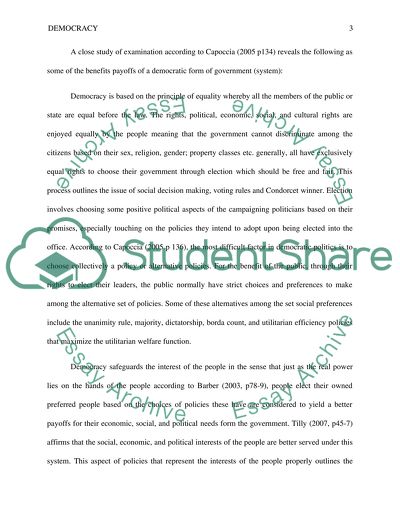Cite this document
(“DEMOCRACY Essay Example | Topics and Well Written Essays - 1500 words”, n.d.)
DEMOCRACY Essay Example | Topics and Well Written Essays - 1500 words. Retrieved from https://studentshare.org/macro-microeconomics/1627915-democracy
DEMOCRACY Essay Example | Topics and Well Written Essays - 1500 words. Retrieved from https://studentshare.org/macro-microeconomics/1627915-democracy
(DEMOCRACY Essay Example | Topics and Well Written Essays - 1500 Words)
DEMOCRACY Essay Example | Topics and Well Written Essays - 1500 Words. https://studentshare.org/macro-microeconomics/1627915-democracy.
DEMOCRACY Essay Example | Topics and Well Written Essays - 1500 Words. https://studentshare.org/macro-microeconomics/1627915-democracy.
“DEMOCRACY Essay Example | Topics and Well Written Essays - 1500 Words”, n.d. https://studentshare.org/macro-microeconomics/1627915-democracy.


